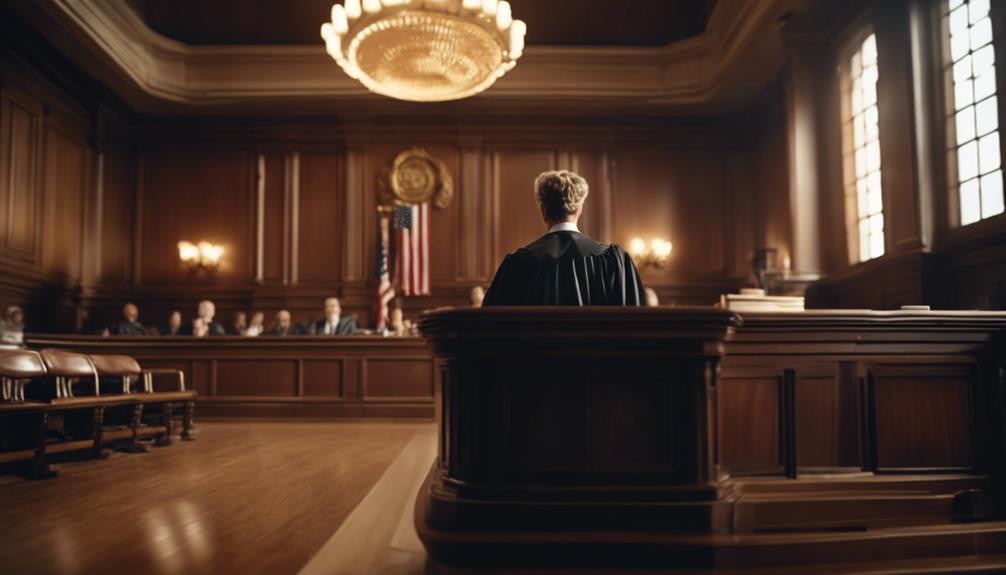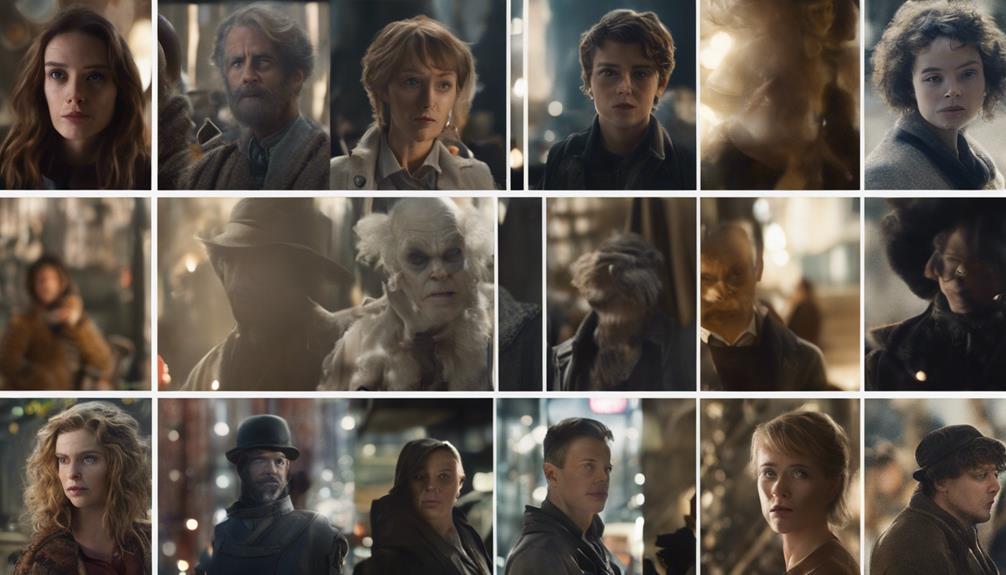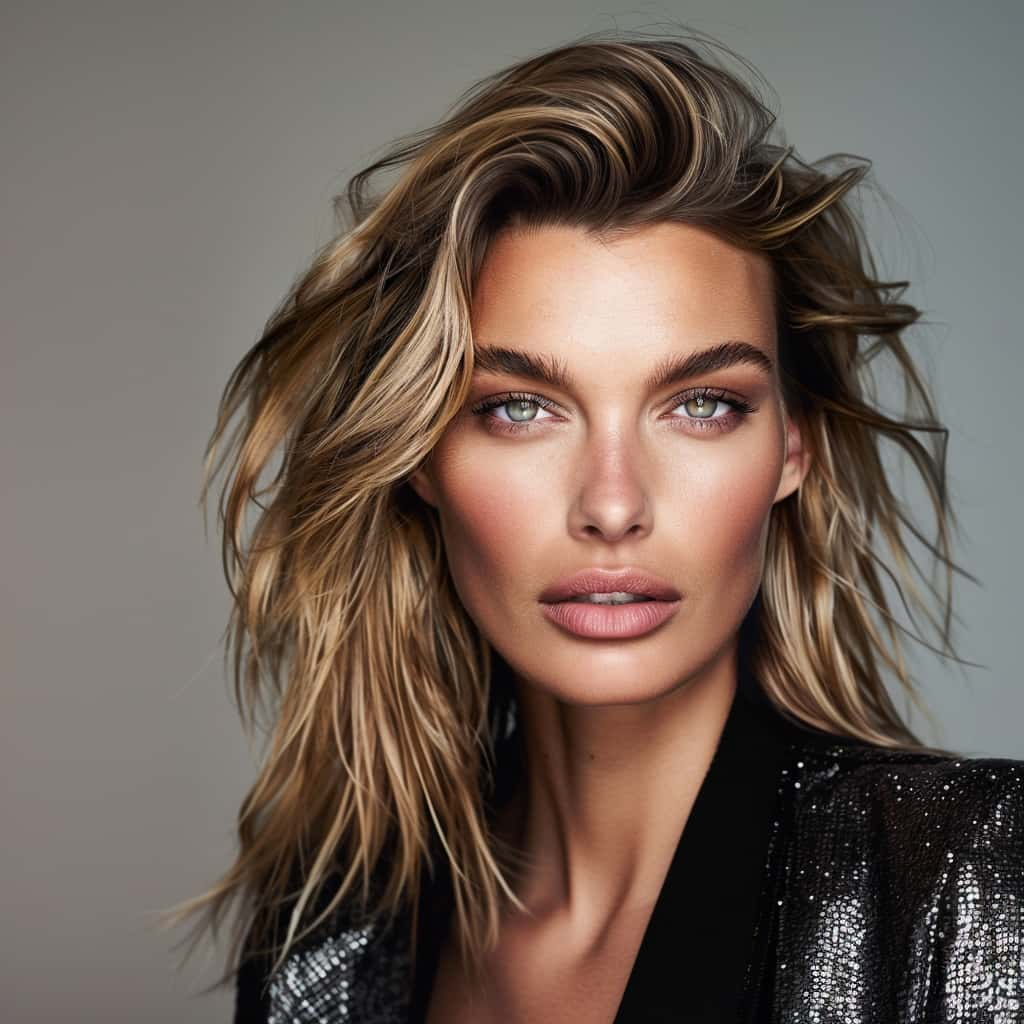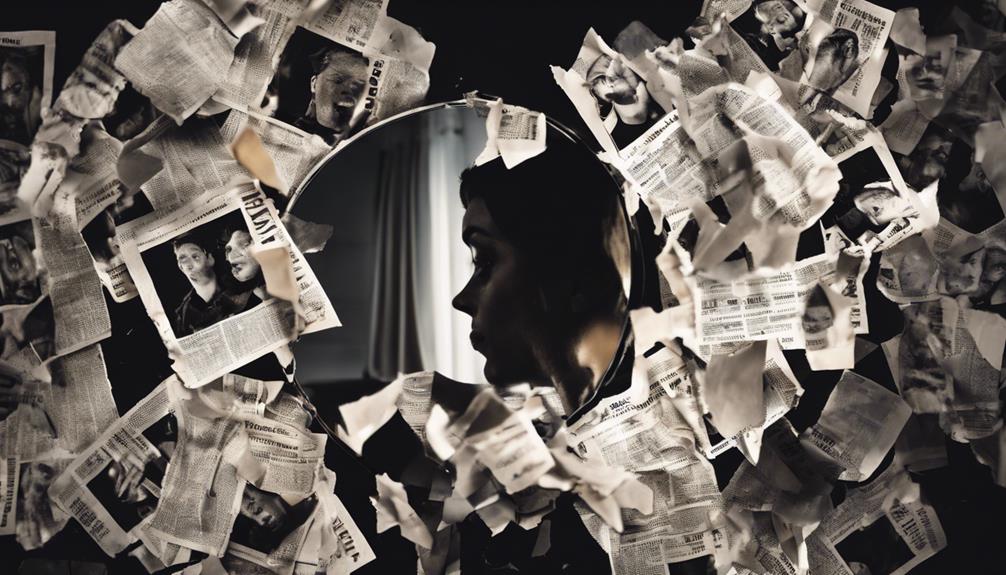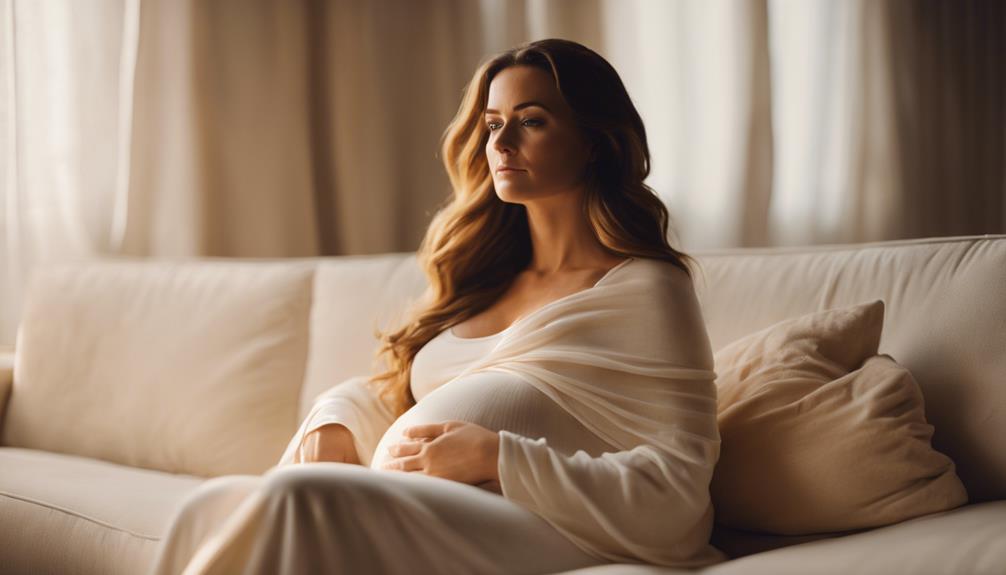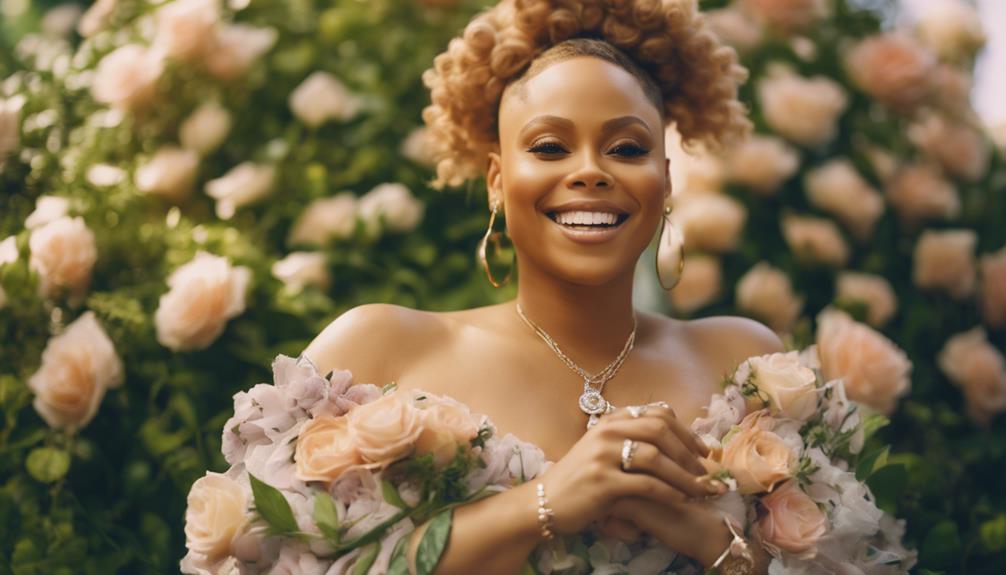High-profile celebrity criminal trials, like the OJ Simpson murder trial, captivate the public with a mix of glamour and intrigue, influencing the pursuit of justice. These trials often feature star-studded defense teams, intense media scrutiny, and public fascination. The trials' outcomes can have a substantial impact on the celebrity's career and public perception, with wealth and privilege potentially shielding them from consequences. As the public scrutiny intensifies, the justice system's fairness and transparency are put to the test. As we explore these trials, we find that the intersection of fame, wealth, and justice raises complex questions about accountability and the legal system.
Key Takeaways
• High-profile celebrity criminal trials, like OJ Simpson's, captivate the public and put the justice system under intense scrutiny.
• Wealth and privilege can significantly influence trial outcomes, with celebrities leveraging financial resources for top-notch legal representation.
• Media scrutiny and public opinion heavily influence celebrity trials, with social media amplifying public sentiment and shaping jury selection.
• Celebrity defendants often struggle with the harsh realities of the justice system, with factors like narcissism and entitlement affecting their mental health.
• The intersection of glamour and justice raises questions about fairness, accountability, and transparency in the legal system, highlighting disparities in treatment.
The OJ Simpson Murder Trial
OJ Simpson's highly publicized murder trial, which riveted the nation from 1994 to 1995, was a sensational spectacle that captivated millions with its dramatic twists and turns. As the first major trial to be televised on Court TV, it was a true media phenomenon.
The former NFL star and actor was accused of murdering his ex-wife, Nicole Brown Simpson, and her friend, Ronald Goldman. The trial featured a 'dream team' of defense attorneys, including Johnnie Cochran and Robert Shapiro, who famously used the phrase 'If the glove doesn't fit, you must acquit.'
After months of intense media coverage and racial tensions, the jury found OJ Simpson not guilty of the murders in a highly controversial verdict. However, in 1997, a Civil Trial jury found Simpson liable for the murders, ordering him to pay $33.5 million in damages to the victims' families.
The OJ Simpson murder trial remains one of the most infamous and influential celebrity criminal trials in American history.
Celebrity Justice in the Spotlight
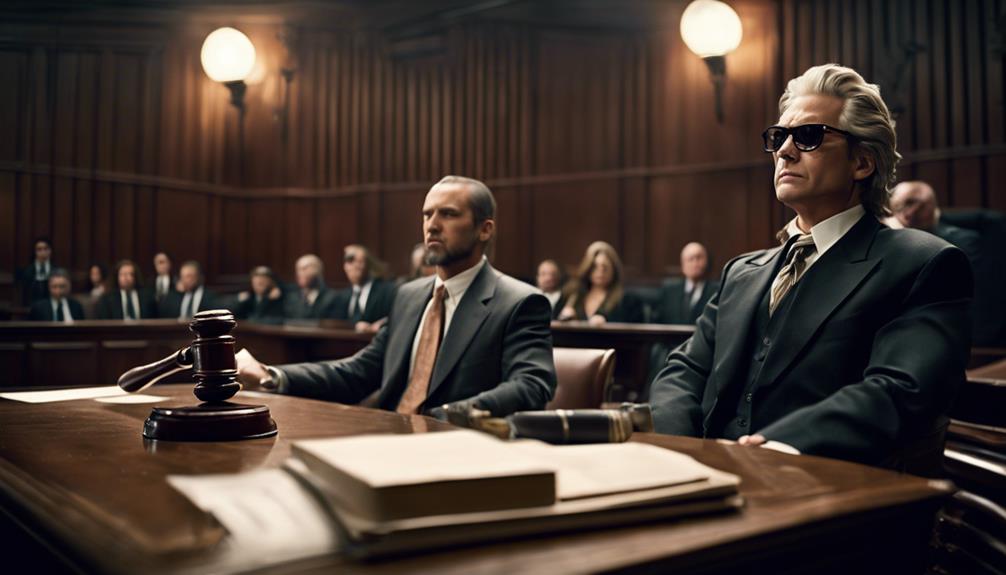
High-profile celebrity trials put the justice system under intense scrutiny, as the world watches to see if fame and fortune can influence the outcome of a case. These trials showcase how the legal system handles cases involving celebrities and the unique challenges they present. The outcomes of these trials can have a lasting impact on both the celebrity's career and public perception.
When a celebrity is found guilty, sentencing is scheduled, and the world waits with bated breath to see the consequences of their actions. During the trial, the celebrity often takes the stand, and their testimony can make or break their case. The media scrutinizes every detail, from the prosecution's strategy to the defense's arguments.
Legal experts and media analysts closely follow celebrity trials to analyze the strategies employed by both sides. As the world watches, the justice system is put to the test, and the verdict can have far-reaching consequences for all involved.
Legal Teams and High-Stakes Defenses
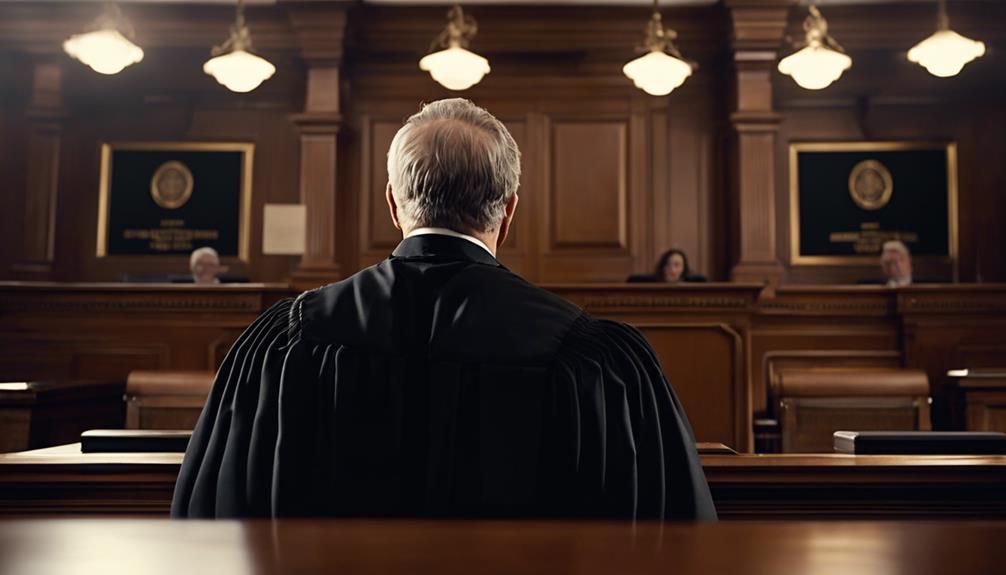
High-profile celebrity criminal trials often feature star-studded defense teams, comprising renowned attorneys, expert investigators, and specialists who craft high-stakes defense strategies to protect their clients' rights and reputation.
These legal dream teams, often assembled by celebrities with deep pockets, spare no expense in challenging evidence, cross-examining witnesses, and presenting compelling arguments to secure favorable outcomes.
Star-Studded Defense Teams
Five of the nation's top defense attorneys often find themselves on the same team, working together to craft a defense strategy that can make or break a celebrity's freedom. These high-powered legal teams bring together experts in various aspects of the law, including criminal defense, media relations, and strategic planning. By combining their expertise, they develop a holistic defense strategy tailored to the unique circumstances of their celebrity clients.
Some key characteristics of star-studded defense teams include:
- Deep pockets: Celebrity defendants spare no expense in hiring top-tier lawyers.
- Courtroom prowess: Renowned defense attorneys are known for their ability to sway juries and navigate complex legal systems.
- Strategic planning: Defense teams craft tailored defenses that take into account the celebrity's public image and media presence.
- Specialized expertise: Teams may include attorneys specializing in areas like criminal defense, media relations, and crisis management.
Celebrity Client Privileges
As the defense strategy unfolds, celebrity clients often reap the benefits of privileged treatment, including private meeting spaces and enhanced security measures, which can greatly impact the outcome of their high-stakes trials. This privileged treatment can provide a sense of comfort and security, allowing celebrities to focus on their defense.
Additionally, high-profile legal teams may employ forensic experts and public relations specialists to manage the case's public image, further enhancing the celebrity's advantage. The defense of celebrity clients is a high-stakes endeavor, with legal teams utilizing expert testimony, character witnesses, and media management to sway the jury.
With the intense scrutiny of the media and public, legal teams must navigate the complexities of the case while managing the celebrity's public image. By leveraging these privileges, celebrities and their legal teams can increase their chances of a favorable outcome. Ultimately, the privileges afforded to celebrity clients can significantly influence the trajectory of their trials.
High-Priced Legal Dream Teams
Celebrity defendants typically spare no expense in assembling high-priced legal dream teams, comprising top defense attorneys and experts from various fields, to build a robust defense and protect their reputation. These legal teams strategically assemble experts in various fields such as forensic evidence, psychology, and technology to build a robust defense.
The following are some key characteristics of high-priced legal dream teams:
- Top-tier defense attorneys: Known for handling complex cases, these attorneys are skilled in managing high-stakes defenses.
- Multi-disciplinary experts: Experts in fields such as forensic evidence, psychology, and technology are assembled to build a robust defense.
- Meticulous planning and execution: High-stakes defenses are meticulously planned and executed to manage the media scrutiny and public opinion surrounding the celebrity defendant.
- Multi-million dollar price tags: The cost of these legal services can run into millions of dollars, with hourly rates for top attorneys reaching thousands of dollars.
These high-priced legal dream teams are designed to provide a vigorous defense and protect the celebrity defendant's reputation, no matter the cost.
Fame and the Court of Public Opinion
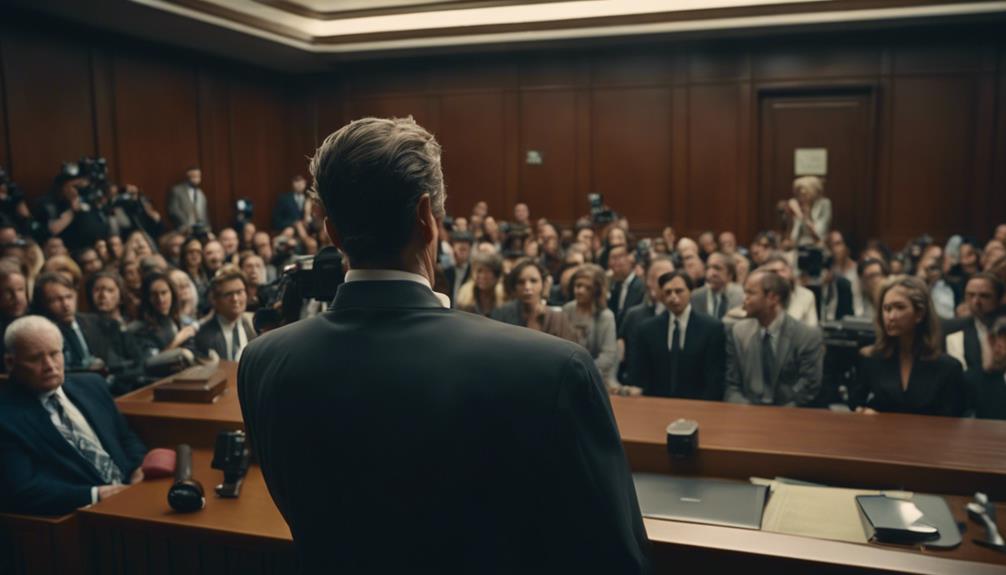
While fame can open doors to unparalleled opportunities, it also brings intense scrutiny, and when a celebrity is accused of a crime, their reputation is put on trial alongside their alleged offense. The court of public opinion plays a significant role in shaping the narrative surrounding a celebrity's criminal case. Celebrities facing criminal charges are subject to intense media scrutiny and public opinion, which can impact their cases.
| Impact of Public Opinion | Examples |
|---|---|
| Influences jury selection | Potential jurors may be biased by pre-trial publicity |
| Shapes trial proceedings | Prosecutors and defense attorneys may use public opinion to sway jurors |
| Affects sentencing | Judges may consider public outcry when determining sentences |
Social media and 24/7 news coverage amplify the impact of public opinion on celebrity trials. Celebrity defendants often employ top-tier legal teams and public relations experts to manage their image during high-profile trials. By understanding the complex dynamics between fame and the court of public opinion, we can better appreciate the unique challenges facing celebrities in the criminal justice system.
Wealth and Privilege in the Courtroom
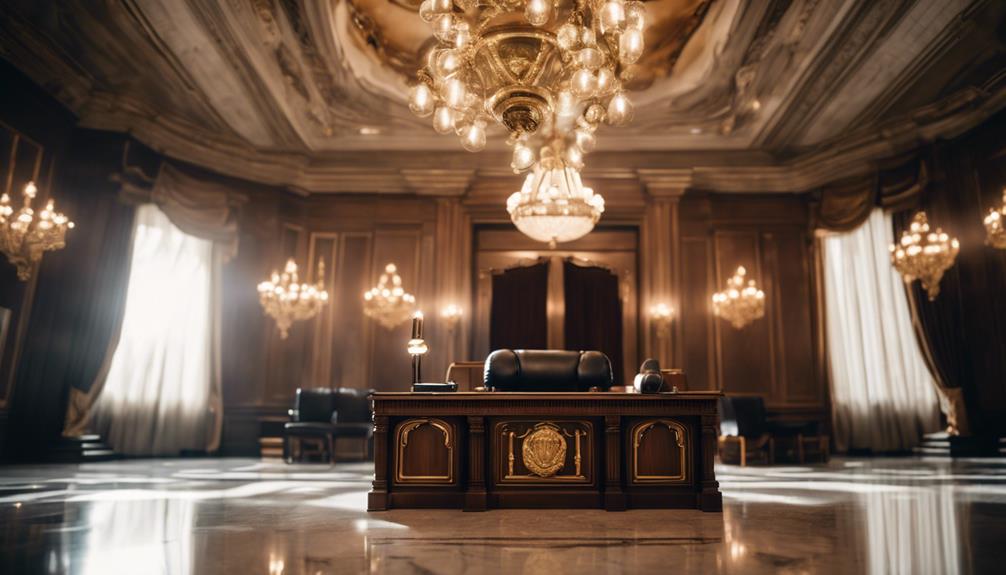
Wealthy defendants, including celebrities, often leverage their financial resources to hire top-tier legal representation, creating a significant advantage in the courtroom.
High-profile celebrity trials showcase the disparities in the legal system, highlighting how wealth and status can impact the course of justice and trial proceedings. The ability to afford high-powered legal teams and access to resources like forensic experts can influence case outcomes and public perception of justice.
Some key factors contributing to this advantage include:
- Expert witnesses: Celebrities can afford to hire top experts in various fields to testify on their behalf.
- Jury consultants: High-profile defendants can employ experts to analyze jury selection and tailor their defense strategy accordingly.
- Private investigators: Wealthy defendants can hire private investigators to gather evidence and build a strong defense.
- Forensic experts: Celebrities can afford to hire top forensic experts to analyze evidence and build a strong defense.
Ultimately, wealth and privilege can sometimes shield celebrities from the full consequences of their actions, leading to criticism of the justice system's fairness and equality.
Scandals and Sensational Headlines
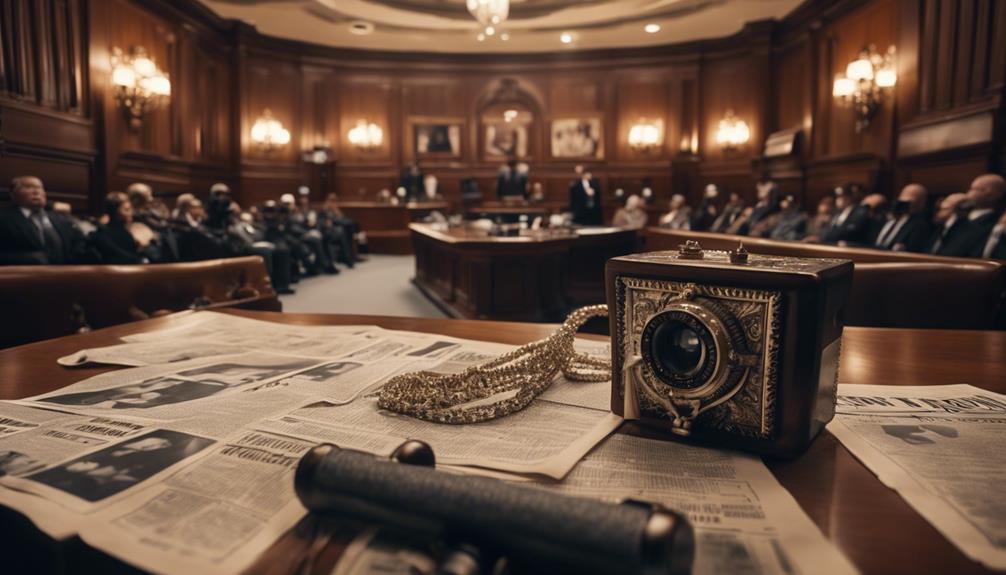
High-profile celebrity criminal trials are often enveloped in controversy, sparking intense media scrutiny and captivating the public with sensational details of scandals and shocking allegations.
The trials of celebrities facing criminal charges can generate significant media attention, leading to extensive coverage in tabloids and news outlets. Scandals in these trials can range from drug abuse, domestic violence, fraud, and even murder, adding to the intrigue and fascination.
Sensational headlines about celebrity criminal trials can shape public opinion, impact reputations, and fuel ongoing debates about justice and privilege. The media frenzy surrounding these trials can be overwhelming, with every detail of the celebrity's life being scrutinized and dissected.
The public's obsession with celebrity scandals has created a lucrative industry, with tabloids and news outlets capitalizing on the public's insatiable appetite for gossip and drama. As a result, the lines between fact and fiction often become blurred, and the truth can get lost in the midst of sensational headlines and scandals.
Behind Closed Doors: Jury Deliberations
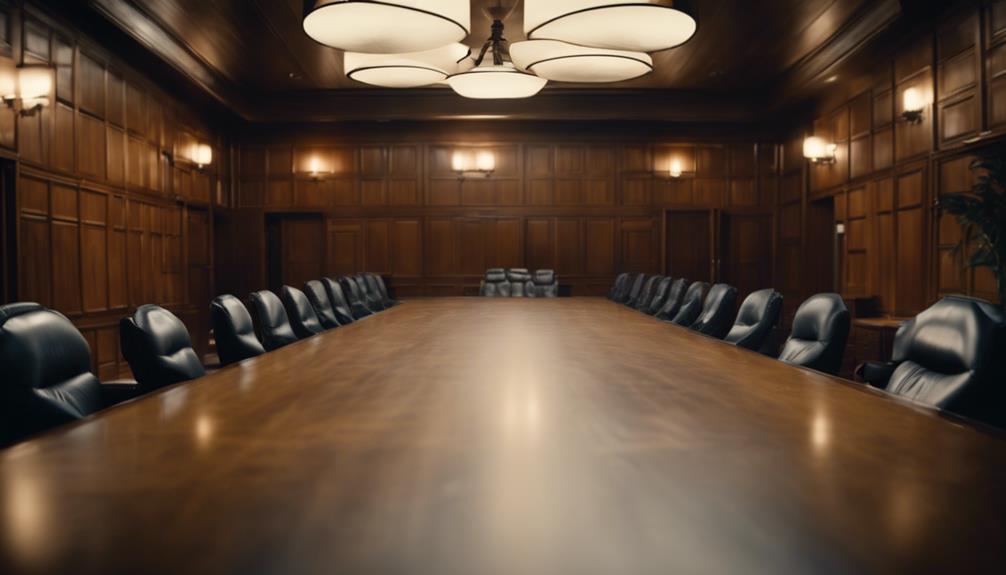
Behind closed doors, jury deliberations in high-profile celebrity criminal trials can be intense and complex, with jurors managing the challenges of reaching a unanimous verdict.
The dynamics at play during deliberations can have a profound impact on the outcome, as jurors' personalities, biases, and perspectives influence the discussion.
As jurors work to distinguish fact from fiction, their strategies and approaches can make all the difference in determining the fate of the celebrity defendant.
Jury Dynamics at Play
Twelve individuals from diverse backgrounds come together to initiate a jury, tasked with the important responsibility of deliberating the fate of a high-profile celebrity defendant. As they commence on this pivotal task, they must set aside personal biases and focus on the evidence presented during the trial.
Deliberations can be intense, with jurors engaging in discussions, debates, and sometimes changing their initial opinions based on group dynamics. The jury foreperson plays a significant role in facilitating a fair and thorough decision-making process, ensuring everyone has a chance to speak and be heard.
To reach a just and impartial verdict, jurors must:
- Analyze the facts presented during the trial.
- Apply the law as instructed by the judge.
- Weigh the credibility of witnesses.
- Reach a unanimous verdict based on the evidence.
Ultimately, the goal of jury deliberations is to reach a verdict that's fair, impartial, and based on the law and evidence presented in the courtroom.
Secret Deliberation Strategies
As jurors retreat behind closed doors, they enter a private space where open discussions and debates unfold, free from external influences. This secrecy allows jurors to freely discuss the evidence and reach a verdict without outside interference.
Jurors are instructed to keep their deliberations confidential, promoting open and honest discussions. During deliberations, jurors meticulously review the evidence presented at trial, consider witness testimonies, and evaluate the credibility of the parties involved.
They engage in debates, discussions, and voting processes to work towards a consensus and deliver a verdict. This private space enables jurors to thoroughly examine the facts of the case and the instructions provided by the judge, ultimately aiming to reach a unanimous decision.
Reaching a Unanimous Verdict
During the intense hours of deliberation, jurors scrutinize every shred of evidence, weighing the credibility of witnesses and the prosecution's claims, all in pursuit of a unanimous verdict. As they discuss the facts of the case, analyze witness testimonies, and consider the instructions given to them by the judge, the process of reaching a unanimous verdict can be challenging.
- Jurors' diverse backgrounds and perspectives can lead to differing opinions, making it difficult to find common ground.
- Confidentiality of jury deliberations guarantees the integrity of the decision-making process, as what's discussed in the jury room can't be disclosed outside.
- All members of the jury must agree on the guilt or innocence of the defendant in criminal cases, as unanimity is essential.
- Time-consuming deliberations can last for hours, days, or even weeks, as jurors carefully review evidence and testimony.
Despite these challenges, jurors endeavor to reach a verdict that reflects their honest assessment of the evidence, ultimately delivering justice in high-profile celebrity criminal trials.
The Psychology of Celebrity Defendants

Celebrities who find themselves on trial often struggle to reconcile their lavish lifestyles with the harsh realities of the criminal justice system. This can lead to a complex psychological dynamic that profoundly impacts their mental health and well-being. The intense media scrutiny and public attention that accompany their fame can exacerbate the emotional distress they experience. Factors like narcissism, entitlement, and a sense of invincibility can also influence the psychology of celebrity defendants.
As they face the loss of privacy and potential damage to their careers and public image, they may struggle to cope with the pressure of a high-profile trial. This can lead to mental health issues, substance abuse, and emotional distress. Additionally, celebrity defendants may feel isolated, betrayed by fans or colleagues, and develop a distorted perception of reality.
As the trial unfolds, it's essential to consider the psychological toll it takes on the defendants, who must navigate the harsh realities of the criminal justice system.
High-Profile Witnesses Take the Stand
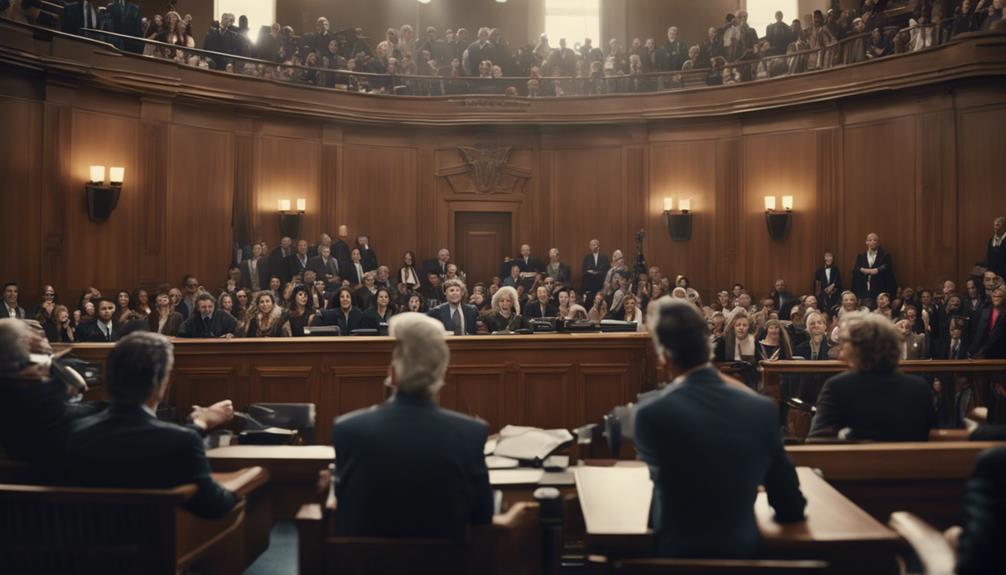
High-profile witnesses, including celebrity friends and associates, take the stand to provide important testimony in celebrity criminal trials. These star witnesses often bring attention to the trial, and their testimony can greatly impact the jury's perception of the case.
As they testify, their credibility and consistency are closely scrutinized by both the prosecution and the defense.
Star Witnesses Testify
Five key individuals, including close friends, family members, and experts, take center stage as star witnesses, testifying under oath and providing pivotal evidence in high-profile celebrity criminal trials. These witnesses are often subjected to intense scrutiny, with their testimonies holding substantial weight in the trial's outcome.
Their testimonies can range from:
- Recalling specific events related to the case.
- Corroborating or contradicting the defendant's story.
- Providing forensic evidence analysis.
- Shedding light on the defendant's character or behavior.
Star witnesses are thoroughly cross-examined by both the prosecution and defense teams to challenge their credibility, accuracy, and consistency in their statements. The testimony of these high-profile witnesses can captivate the public, shape media coverage, and significantly influence the narrative surrounding the celebrity criminal trial.
Celebrity Friends Appear
As the prosecution and defense teams prepare to make their cases, a new cast of characters takes center stage: the celebrity friends of the defendant, who are about to testify as high-profile witnesses. These A-listers bring their own brand of glamour to the courtroom, drawing even more attention to the trial. But beyond the spectacle, their testimony can be vital in shaping the jury's perception of the defendant.
| Celebrity Witness | Relationship to Defendant |
|---|---|
| Close Friend | Provides character testimony |
| Business Partner | Offers insight into defendant's actions |
| Fellow Celebrity | Shares personal interactions with defendant |
| Industry Insider | Reveals behind-the-scenes information |
Their statements can have a significant impact on the case, as their credibility and relationship with the defendant come under scrutiny. As they take the stand, the public and media alike are keen to hear their testimony, which may shed light on the defendant's lifestyle, relationships, and inner workings of the celebrity world.
Justice and Accountability in the Spotlight
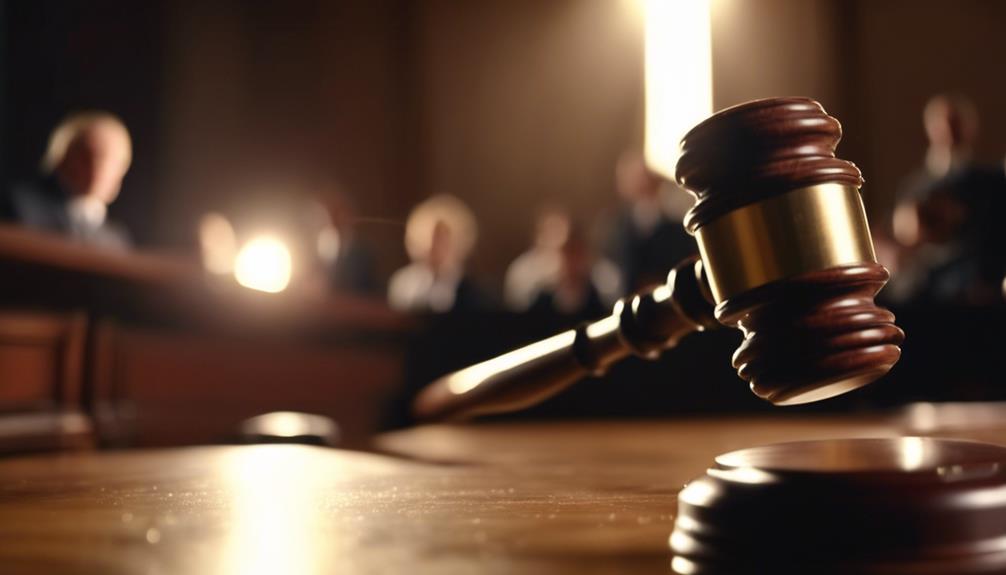
One notable aspect of high-profile celebrity criminal trials is that they thrust the issues of justice and accountability into the spotlight, sparking intense public scrutiny and debate. These trials showcase the legal process's handling of cases involving well-known individuals and highlight how the justice system manages the complexities of celebrity status and its impact on legal proceedings.
The outcomes of these trials can have lasting effects on public perceptions of the legal system's ability to hold all individuals accountable regardless of fame or status. Here are some key aspects of justice and accountability in high-profile celebrity criminal trials:
- Fairness and transparency: Celebrity trials draw significant media attention, sparking discussions about fairness, transparency, and equality under the law.
- Impact on public perception: The outcomes of these trials can shape public opinion on the legal system's ability to hold celebrities accountable.
- Legal complexities: These trials highlight the challenges of dealing with celebrity status and its impact on legal proceedings.
- Accountability for all: High-profile celebrity criminal trials raise questions about whether the legal system treats all individuals equally, regardless of their fame or status.
Frequently Asked Questions
What Is the Biggest Trial in US History?
She considers the O.J. Simpson trial as one of the most significant trials in US history, gripping the nation in the mid-1990s.
However, others argue it's the impeachment trial of President Bill Clinton in 1998, a significant and widely watched legal proceeding.
Alternatively, the trial of Timothy McVeigh for the Oklahoma City bombing in 1995 was a major event in US legal history.
Ultimately, determining the 'biggest' trial is subjective and depends on individual perspectives.
Where Can I Watch Celebrity Court Cases?
She can watch celebrity court cases on television networks like Court TV, A&E, and Investigation Discovery. Many high-profile trials are also covered by news channels such as CNN, Fox News, and MSNBC.
Additionally, some cases are available for streaming on platforms like Hulu, Netflix, and Amazon Prime Video. Courtroom footage and highlights are frequently shared on social media platforms like YouTube and Twitter.
What Is a Good Trial to Watch on Court Tv?
When seeking an engaging trial to watch on Court TV, consider the 'Doomsday Cult Mom Trial: ID v. Lori Vallow Daybell', which explores a mother's alleged conspiracy and evidence destruction.
Alternatively, the 'Johnny Depp Defamation Case: Depp v. Heard' offers insight into a high-profile celebrity lawsuit.
For a more somber tone, the 'Deadly Parade Crash Trial: WI v. Darrell Brooks' investigates a tragic incident's legal aftermath.
Can You Watch Old Court TV Trials?
She can watch old Court TV trials on various platforms, including YouTube, streaming services, and archival websites.
These trials offer a unique opportunity to witness real courtroom drama and gain valuable insights into the justice system, legal strategies, and famous cases that captivated the public.
Viewers can access full trials, highlights, key moments, and expert analysis from past Court TV broadcasts, providing a wealth of information on high-profile cases.
Conclusion
In the glare of the spotlight, celebrity criminal trials become a spectacle, engrossing the nation and blurring the lines between justice and entertainment.
Like a thousand-pound elephant in the courtroom, fame influences every aspect of the trial, from the legal teams to the jury's deliberations.
As the world watches, the defendant's fate hangs in the balance, and the pursuit of justice becomes a delicate dance between accountability and acquittal.

